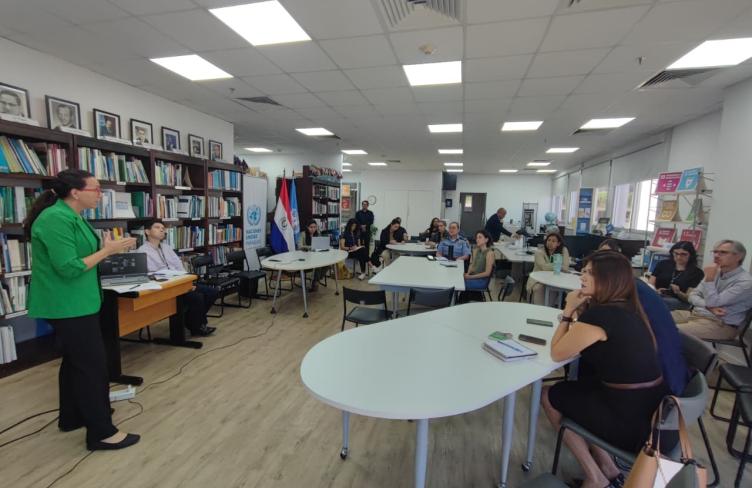On 23-24 January 2018, the APT trained Rwandan civil society organisations (CSOs) to effectively contribute to the implementation of the Optional Protocol to the Convention against Torture (OPCAT) in the country, and in particular to use evidence-based advocacy to prevent torture and other ill-treatment.
The two-day workshop built on previous initiatives to support OPCAT implementation efforts in the country, in particular on a workshop organised for CSOs in May 2017 during which participants requested further training on using evidence-based advocacy to prevent violence, torture and ill-treatment. Such evidence-based advocacy can serve as a foundation for the future work of the National Commission for Human Rights (NCHR) as National Preventive Mechanism (NPM), particularly in regard to formulating solutions-oriented recommendations to improve the treatment of persons deprived of their liberty and reduce the risks of violence, torture and other ill-treatment.
Hence, the training co-organised with the Legal Aid Forum (LAF) and together with the NCHR, aimed at building CSOs’ capacity to develop and use research to provide evidence of torture, ill-treatment and violence more generally, as well as to develop advocacy strategies to address gaps in law and practice. About 30 participants from organisations that work in the areas of administration of justice or violence prevention, or that are familiar with the UN Convention against Torture and its Optional Protocol attended the workshop. They acquired tools, skills and approaches, including on how to conduct research and write reports, how to monitor and support the preventive work of the NCHR, and how to implement measures prohibiting and preventing torture and violence.
A few days before, on 19 January 2018, the Cabinet had adopted a Draft Law giving the torture prevention mandate to the NCHR. The workshop therefore also represented an opportunity to discuss practical ways in which CSOs could support both the legislative process – such as by reviewing the Draft NPM Law and submitting comments to Parliament where necessary – and the NPM’s preventive work, such as by monitoring its effective functioning and conducting research to help it identify priority issues or facilities to visit.
APT Provides Additional Training to relevant Government Institutions to Support NCHR’s Future Preventive Mandate
APT’s mission to Rwanda also provided an opportunity for the APT to support other relevant institutions in the process towards the final adoption of the NPM law, including members of the NCHR, of Rwanda’s Ministry of Justice and Law Reform Commission, as well as of the Parliament. At their request, the APT organised a two-day workshop, on 29-30 January, to strengthen their knowledge on the key principles on the establishment and functioning of an effective NPM in compliance with the OPCAT, and to provide them with the tools and skills necessary to support the future preventive mandate of the NCHR.
During these two days, the Draft NPM Law was discussed in depth to ensure the concerned institutions’ effective support to the final adoption process, including during its presentation to the Parliamentary Committees. While appreciating its compliance with the OPCAT in regard to new missions and powers provided to the NCHR, participants took the opportunity to discuss and put together recommendations that should be included in the Draft Law at the Parliament level for further improvement. The outcome of the meeting was then submitted by the NCHR to the Parliamentary Committee in charge of first scrutiny of the Draft Law before its discussion in plenary.
Following the Republic of Rwanda’s ratification of the OPCAT on 30 June 2015, the Government conducted a series of consultations with various stakeholders that led to the conclusion that it would be most appropriate to designate the NCHR as Rwanda’s NPM. The APT contributed to these consultations and provided both advice and technical assistance in the drafting of the Draft Law amending the NCHR’s legal basis to integrate the NPM mandate.


